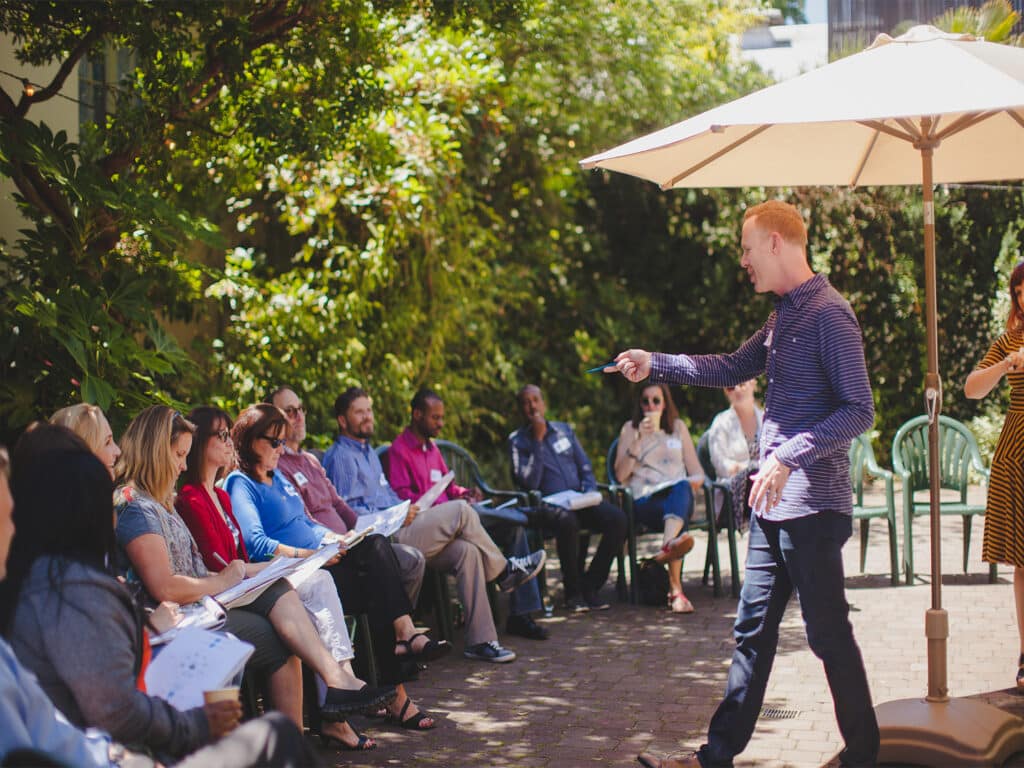
5 Steps to Consciously Build Resilience
This past year has been an especially difficult time for everyone, but it has demonstrated our ability to overcome in the face of adversity and challenges outside of our control. We’ve been unconsciously building our resilience. Resilience is an important muscle to develop because of its ability to help us manage stress and effectively solve problems. But how do we consciously build our resilience? Here are 5 steps you can take:
1. Practice Mindfulness
Mindfulness is a mental state achieved by maintaining your awareness of the present moment. Practicing mindfulness allows you to intentionally concentrate your energy instead of letting the buzz of everyday life cloud your thoughts. Mindfulness builds resilience because it helps you focus your attention on your challenges without becoming overwhelmed.
Meditation and Resilience
Meditation is a mindfulness practice that enhances resilience. In a recent study, researchers examined the neural changes people experience after meditation. When compared with resilience scores via assessments over time, it demonstrated meditation’s efficacy in enhancing resilience.
Meditation helps you slow everything down: your thoughts about the past, worries about the future, and everyday anxiety. Taking the time to be at peace promotes mindfulness which increases awareness and reduces stress. This increased awareness and conscious act of reducing stress builds resilience.
Mindfulness can be practiced through various techniques like meditation and breathing exercises. All it takes is a few minutes a day to implement mindfulness practices into your regular routine and build your resilience.
2. Make Connections
Who do you usually turn to after having a stressful week or a bad experience? Your support system. Whether it’s your parents, friends, colleagues, etc. – we have people in our lives that we turn to when we need support. Social relationships have appeared, in some resilience studies, as a protective factor, helping you overcome the challenges of daily life.
Relationship between Social Support and Depression
A study conducted by psychologists Alan R. Teo , HwaJung Choi, and Marcia Valenstei, examined the relationship between the quality of social relationships and depression. The sample consisted of 4,642 American adults, ages 25–75, who completed surveys with a 10-year follow up.
These surveys assessed the quality of the relationships in these individual’s lives. The study concluded that those with the lowest overall social relationships quality had more than double the risk of depression than those with the highest quality.
Having a strong support network of people who can ground you can significantly reduce your risk of depression and support your overall mental health.
Social Support and its Relationship to Physical Health
A study conducted in Alameda County found that men and women without ties to others were 1.9 to 3 times more likely to die from ischemic heart disease, cerebral vascular disease, cancer, or other diseases within a nine-year period compared to people with many more social contacts. Your support system bolsters your resilience and can protect you from negative physical health ailments.
The power of your social network is evident for emotional, psychological, and physical well-being. Take the time to connect with people you care about. While it can be very easy to get sucked up in the routine of your daily life, don’t let the hustle of everyday life keep you from taking care of yourself and others.
3. Cultivate a Growth Mindset
Growth Mindset is a concept that was created by psychologist Carol Dweck. She distinguished two common mindsets individuals adopt in relation to their talent and ability: growth mindset and fixed mindset.
Someone with a growth mindset believes that they can enhance their abilities, knowledge, and talent through effort. Individuals with this mindset put their energy into developing stamina and learning from mistakes. From the growth mindset perspective, talent is just the launching point, with failure and success serving as feedback for continual improvement.
Someone with a fixed mindset believes their abilities and talents cannot change. Individuals with a fixed mindset think the abilities that they need to succeed are inherent, therefore giving them little control over their lives.
One of the biggest differentiators between growth mindset and fixed mindset is that someone with a growth mindset sees mistakes as learning opportunities. Individuals with a growth mindset are more likely than those with a fixed mindset to continue working and putting in effort, even in the face of challenges and setbacks.
A growth mindset is rare but can be developed. Working with a life coach and experiencing life coach training, where growth mindset is ingrained in the foundation of the practice, could help you cultivate a growth mindset. At Coach Training EDU, our learning philosophy is centered around the growth mindset framework and celebrated among everyone going through the program.
Adopting a growth mindset allows you to grow from challenges instead of allowing them to hold you back.
4. Find Purpose
Purpose is the “why” behind your life. It explains why you pursue a certain career path, participate in certain hobbies, and maintain certain relationships. Purpose serves as a driver for how you design your life, especially after encountering difficult situations.
Having a purpose provides clarity and a sense of meaning in how you behave because it can guide you toward your ideal life path.. If you don’t know your purpose, here are some steps you can take to narrow it down:
- Pursue different hobbies to hone in on your interests.
- Regularly reflect on the actions you’re taking to determine whether or not you’re using your time wisely. Ask yourself:
- How are these actions helping me transform into the best version of myself?What am I learning about myself throughout this experience?Why am I doing this?
- 3.Consume knowledge that is meaningful to you. There is so much content in the world. Books, movies, TikToks, blog posts, poems, etc. There are so many avenues to explore. Consume content that matters to you and learn about other people’s purpose to help you clarify your own.
Fostering a strong sense of purpose sets the infrastructure for resilience.
5. Take Action Towards your Goals
This one probably sounds easy, but how many times have you had an idea and thought, “I’ll do that once I have (blank) done.” A lot of times, we put our dreams and goals on hold for other things. We think we have to meet certain markers before we take a step forward in pursuing our passions.
Take action. Actively pursuing your goals will give you something to look forward to and help you develop your sense of purpose.
Building resilience is something that can be done with intention. Difficult times are inevitable; the COVID-19 Pandemic and everything we’ve experienced in the past year prove that. However, if you take the steps to make sure you’re mentally prepared for negative situations – you’ll be better off in the long run.




